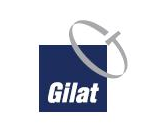New Telehealth Case Study Released for Home Health Care
SAN DIEGO, July 11, 2018 /PRNewswire/ -- Homestead Health and Accessible Home Health Care - Houston have jointly released a comprehensive case study of a new, innovative telehealth technology following a year-long home health pilot program initiative.
Randy Paramore is CEO of Accessible Home Health Care - Houston, a Joint Commission Accredited home health agency with a 4.5-star CMS customer satisfaction rating. Paramore was searching for low-cost telehealth devices that could provide his agency a simple, low cost solution to dramatically increase patient engagement, facilitate staff and client communications, and reduce avoidable and unnecessary hospital readmissions.
He discovered the CareCaller(TM) for home health agencies and providers.
How does it work? The revolutionary telehealth device works much like the nurse call buttons which have been used by hospitals for decades. Now, much more advanced, it gives home health patients the ability to directly text & call up to three pre-established contacts including visiting nurse, home health provider office, or a 24/7 nurse assist hotline. Patients will be immediately connected to their care team to ask questions about their medical condition(s), confirm medications, schedule/reschedule follow-up appointments, report a worsening condition, or to request urgent nurse assistance. The CareCaller(TM) even packs in advanced communication features including a real-time GPS patient locator, fall alert, text messaging and ability to make/receive calls.
Encouraged by initial testing, Paramore embarked on a pilot program in June of 2017 to document the benefits - and ROI - of the CareCaller(TM) device for their home health clients. The pilot program initially consisted of Paramore using a statistical predictive analytics tools to identify those select candidates/clients most critical health conditions with the highest risk of readmission and/or hospitalization event.
Accessible Home Health Care provided a select group of "at-risk" clients with a CareCaller(TM) device at no charge. Each patient's visiting nurse or aide were instructed as to the initial CareCaller(TM) set-up and testing. Additionally, they would check on the device when they were routinely at the patient's home. Paramore monitored his agency's metrics regarding missed appointments, hospital admission rates, patient satisfaction ratings and professional referrals.
"Initially, we tried it with our top tier of chronically ill clients and have expanded it to the second level of chronically ill clients," explained Paramore. "Recently we expanded it further with some of our non-medical clients."
Chronic conditions, including CHF, COPD and diabetes among others, are all major contributors to avoidable hospital admissions. The good news is that many such conditions exhibit early warning signs that, if identified and responded to immediately, can easily be addressed by their home health agency and avoid unnecessary readmissions. The CareCaller(TM) is designed to alert a patient's home health provider to problems or situations before the patient involves an EMS dispatch, emergency department visit and resulting hospital admission.
Avoiding an unplanned ER visit by addressing the medical issue(s) at the patient's home, home health agencies can effectively prevent the resulting costly hospital admissions. This makes home health agencies who utilize this technology much more attractive to be the recipient of medical professionals, payors and health system client referrals.
"Referral resources want to work with business partners that will help them achieve the goals they've outlined for their patients," continues Paramore. "When they find a good business partner that is capable of reducing readmissions, not only does the patient benefit from quality of care, but the hospital benefits because they won't have to pay the fines levied by CMS. That's the only way to thrive in our competitive market."
At the end of the twelve-month pilot initiative, Accessible Home Health Care was able to document an 50% decrease in missing visiting home nurse appointments, a significant increase in their CMS patient satisfaction rating, increased client referrals and a reduction in avoidable hospital admissions.
A FREE COPY of the complete Accessible Home Health Care - Houston Case Study, the full is available for viewing and download on the Homestead Health web site.
Media Contact:
Kathleen Holohan, Healthcare Director
198302@email4pr.com
800-209-3220
View original content with multimedia:http://www.prnewswire.com/news-releases/new-telehealth-case-study-released-for-home-health-care-300679169.html
SOURCE Homestead Health




